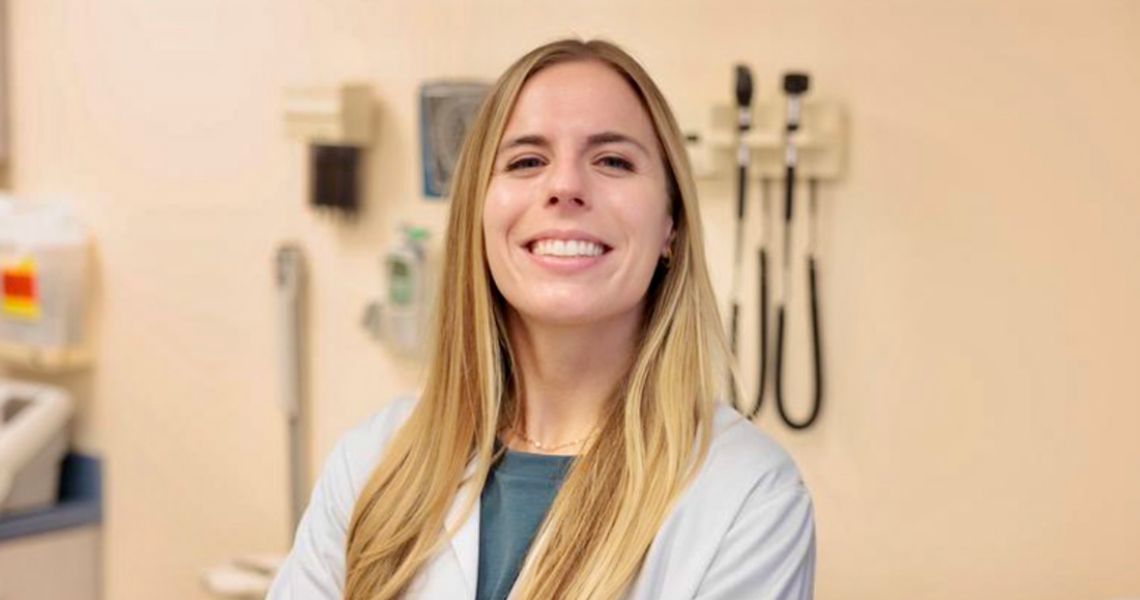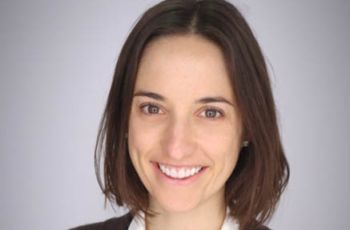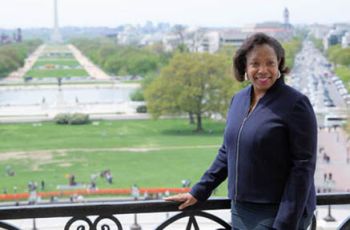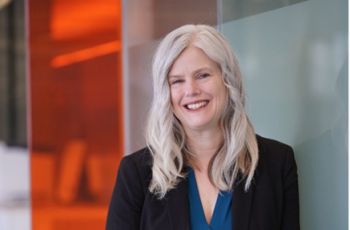Caring for others is deeply rooted in Victoria Atchison’s DNA. When she was a young girl, she wanted to be a veterinarian. As a high school student, she shadowed a physician assistant (PA) in her primary care provider’s practice, and her career trajectory shifted. Now, as a PA at George Washington (GW) Cancer Center, Victoria’s DNA is activated every day.
What made you decide on this career path? And why oncology?
I’ve always felt that I wanted to be in a nurturing role, even from the time I was little. So, working in medicine, and especially in cancer care, has been a good fit. I’m very fulfilled by this work. My family and friends have been affected by cancer. Almost everybody you know has been touched by it somehow. This is such a vulnerable population that needs a lot of support, which my family received. It’s very meaningful to help someone through a hard time and this is a way that I can pay it forward.
What gets you out of bed in the morning? What’s your motivation?
Well, being a resource for people at the worst time in their lives is really motivating for me. There’s so much fear and uncertainty, but there’s also hope and optimism. All these components play together really well.
I provide a lot of emotional support for patients and their families and caregivers. I make sure I’m listening with an open ear and leaving space for silence or uncomfortableness. Asking open-ended questions and letting them express themselves in a safe space. I make sure they feel like we’re on their team, listening to their needs and values and not dictating their treatment. Before coming to GW, I worked in Palliative Care, and I’ve received specialized training to have those serious illness conversations. The perspective I bring from that experience has been invaluable.
I like the collaborative nature of this work, the interaction with people — the patients and their families, and the multidisciplinary teams I work with. On any day I might be talking with thoracic, pathology or radiology, maybe neurosurgery. It depends on the disease state and where we are in the treatment protocol. These are strong teams and we’re working so, so, so hard to help our patients through their illnesses.
It sounds like this can be very emotionally draining. How do you take care of yourself?
The emotional part can be tough. But what’s even more difficult for me is the barriers to care that so many of our patients encounter. I’m talking about transportation issues that prevent them from coming to the clinic or not having insurance. I feel like oftentimes, their care is directly impacted by situations that should be preventable or by barriers that we can overcome. I’ve been working very closely with our social workers to identify these patients early on and fill the gaps in their care, and I think we’ve been seeing more success there, which is good.
Some days are harder than others. When I see younger patients, patients my age, with young children, that can be difficult. I have my colleagues to talk with and vent to. I’m part of a weekly palliative medicine interdisciplinary conference with social workers and radiation oncology. We talk about current cancer patients and share stressors about their cases. We go over new diagnoses. Right now, we have a new glioblastoma patient — that’s very serious. We also take time for bereavement, to remember patients, and to share memories, which is very, very helpful.
My twin sister is a cardiology PA who does a lot of work with heart failure. We’re there for each other, because we get it. I also have my fiancé to lean on. He’s a good listener.
Are there advancements in cancer treatment that you find exciting?
Yes! We’re working with Tempus, a company that does molecular profiling, which helps us make more informed and personal treatment plans. We send tissue obtained from a biopsy or a blood sample and they sequence these samples and then provide information about any genetic or targetable mutations, usually in a week, which is revolutionary. This is opening doors for immunotherapy and targeted therapies in addition to the more traditional chemotherapy. Patients have more options for their specific tumor type with, hopefully, fewer side effects. This has become routine for nearly every patient.
I recently started working with Dr. Goyal in radiation oncology on clinical trials for patients with HIV and cancer. That’s a field he’s very involved in, and I’m becoming more involved in those studies by identifying patients who qualify and arranging outpatient follow-up care.
You make a difference in the lives of so many patients. Is there a patient who has made a difference in yours?
There is one patient who stands out. It was a lovely family whose mom was diagnosed with metastatic pancreatic cancer, which, as you know, is very severe and often found at a late stage. There were other complications that had to be considered when we were working up her treatment plan, so we had a lot of conversations with her and her family.
The family was amazing — they were researching clinical trials and treatment options and bringing them to the table. By the end of the week, we decided together that chemotherapy was not the right option. Mom really wanted to just go home and spend meaningful time with her family and not have to deal with the side effects of a treatment that wasn’t going to help the cancer but would impact her quality of life.
She was a big Bruno Mars fan and would have loved to see him in concert. I reached out to him on social media, and a friend who works in broadcasting tried calling his agent. In the end, we weren’t able to make a connection but the fact that I even tried meant a lot to them. That was a special memory they could carry with them.
I only knew them for five days, but it was a very special bond. I will never forget them.




